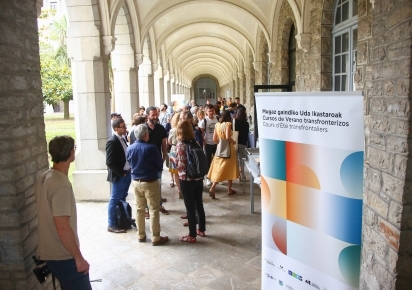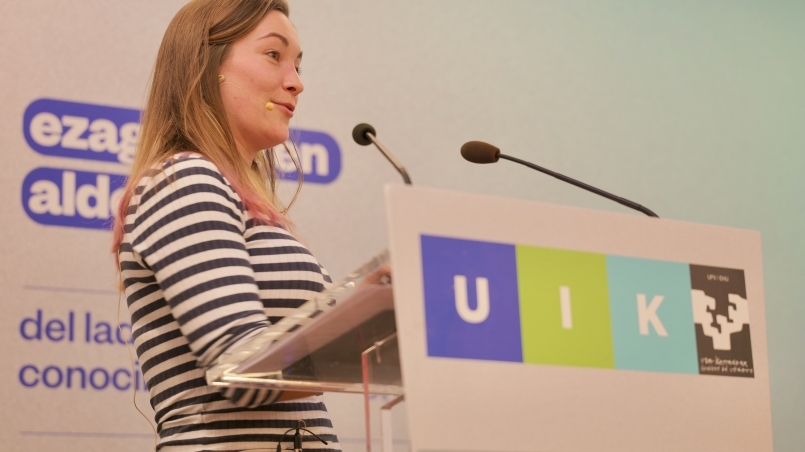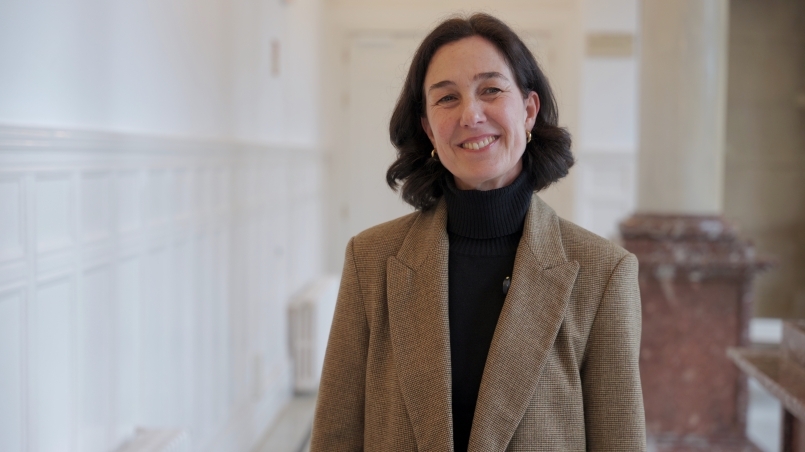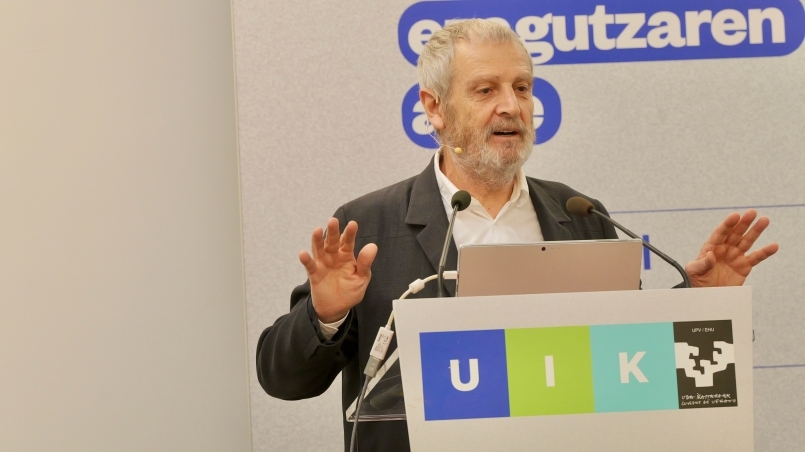Cross-Border Summer Courses are a benchmark for sharing knowledge and generating networks
The Cross-Border Summer Courses are aimed at cross-border citizens and seek to make visible the proactive role of universities in the creation of a more economically, socially and territorially cohesive cross-border space, as has been achieved in other European cross-border areas.

In this second edition, the Cross-Border Summer Courses are becoming a strategic place and a node for the dissemination of intercultural and multilingual knowledge, with the capacity to overcome borders to share knowledge and generate meeting networks that will translate into new opportunities and proposals in the short, medium and long term.
1173 people from countries such as Spain, France, Argentina, Colombia, Peru, Chile, Mexico, Romania, Dominican Republic, Germany, China, Uruguay, Panama, Italy, El Salvador, Costa Rica, South Korea and Algeria took part.
The lectures of the twelve Summer Courses and five open conferences, face-to-face and live online, have been given by 67 experts with a wide variety of profiles. Academics, directors of administrations, heads of associations, film directors, etc. have participated.
These courses are a vector of multicultural cohesion, making it possible to address both the local and the global with the same relevance, creating new and hitherto unheard-of links.
The topics discussed covered different areas of knowledge and ranged from the significance of the Basque Eurocity as a European laboratory for cross-border citizenship, to the challenges of artificial intelligence from the point of view of security and justice from a cross-border approach. We discussed cross-border and transnational analyses of video games and reflected on territorial development in solidarity. We talked about the Basque diaspora, from the cross-border departure to its integration in America, as well as European integration on the French-Spanish border. Education was in the spotlight as an instrument of social cohesion for the future, and proposals for education and research to overcome borders were presented. Climate change and the territory, as well as borders and landscape, created debate and we talked about and enjoyed cinema from the Northern Basque Country.
These are the twelve courses that took place:
|
COURSE |
DATE |
DIRECTORS |
PLACE |
|
Euskal Eurohiria: un laboratorio europeo para la ciudadanía transfronteriza |
07-17 |
Ander Arzelus |
Cité Des Arts |
|
07-17 |
Céline Teyssier |
Cité Des Arts |
|
|
Análisis transfronterizos y transnacionales de los videojuegos: usos, interacciones y acompañamiento |
07-17 |
Yannick Hernández |
Cité Des Arts |
|
07-17 |
Itziar Rekalde
|
Santurtzi, Bilbao, Mutriku, |
|
|
Desarrollo territorial solidario formas organizativas y jurídicas y de cooperación al servicio del territorio |
07-18 |
Fabienne Pinos |
Cité Des Arts |
|
07-18 |
Isabelle Tauzin |
Cité Des Arts |
|
|
La integración europea en la frontera franco-española: una perspectiva transfronteriza |
07-18 |
Ihintza Palacin |
Cité Des Arts |
|
La educación como instrumento de cohesión social del futuro: re-representación del currículo vasco |
07-19 |
Nora Salbotx |
Cité Des Arts |
|
07-20 |
Itziar Aguado |
Cité Des Arts |
|
|
07-20 |
Hélène Larralde |
Cité Des Arts |
|
|
07-21 |
Nahia Idoiaga |
Cité Des Arts |
|
|
07-21 |
Josu Martinez |
Cité Des Arts |
The day devoted to the situation of cinema in the Northern Basque Country, five short films directed by various speakers taking part in the conference were shown.
In addition to these courses, five open activities took place within the framework of the voyage on board the training ship Saltillo:
|
07-18 |
Portugalete |
Higher Technical School of Nautical and Naval Machinery UPV/EHU |
|
|
Los ammonoideos de Mutriku: un patrimonio oceánico de hace 100 millones de años |
07-20 |
Mutriku |
Zabiel Cultural Centre
|
|
07-22 |
Saint-Jean-de-Luz |
City Hall |
|
|
07-24 |
Donostia/San Sebastián |
Miramar Palace |
|
|
07-26 |
Bilbao |
Itsasmuseum |
The Saltillo training ship has hosted the second edition of the pioneering project Universidades que miran al mar: navegando por la sostenibilidad del océano en el buque escuela Saltillo, which shares success with this second cross-border edition of which it forms part. Seven students from the University of the Basque Country UPV/EHU and the University of Bordeaux have sailed with the crew of students from the Bilbao School of Engineering (Nautical), in a unique experience that has combined three integrated training programmes: on board the Saltillo training ship, collaborative learning for ocean sustainability and a programme of open lectures on land for all citizens. A Cross-border Summer Course that sailed from Santurtzi to Saint-Jean-de-Luz/Ciboure and back, also visiting the enclaves of Portugalete, Bilbao, Mutriku and Donostia/San Sebastián.
The courses were taught in the three official languages of the Euroregion (Basque, French and Spanish), underlining the value of multilingualism and interculturality.
In view of the success and commitment shown by both the collaborating agents and the students, the consortium will continue working to consolidate this project in future editions.
All this has been made possible thanks to the Organising Committee that is driving this project forward:
- University of Bordeaux (UB)
- University of the Basque Country (UPV/EHU)
- UPV/EHU Summer Courses Foundation (UIK)
- L’Université Bordeaux Montaigne (UBM)
- L'Université de Pau et des Pays de L' Adour (UPPA)
- Public University of Navarra (UPNA)
- Euskampus Foundation
- CNRS/IKER
- Provincial Council of Gipuzkoa
- New Aquitaine-Euskadi-Navarre Euroregion
- La Communauté d’Agglomération Pays Basque
- Maison des Sciences de l’Homme de Bordeaux (MSH Bx)
The Organising Committee has been joined by a multitude of agents to whom we would also like to express our gratitude, such as: Eusko Ikaskuntza, Mutriku Town Council, Saint-Jean-de-Luz Town Council, Ciboure/Ziburu Town Council, Département des Pyrénées atlantiques, Itsasmuseum, Ocean i3 and the Port Authority of Bilbao, among others.


